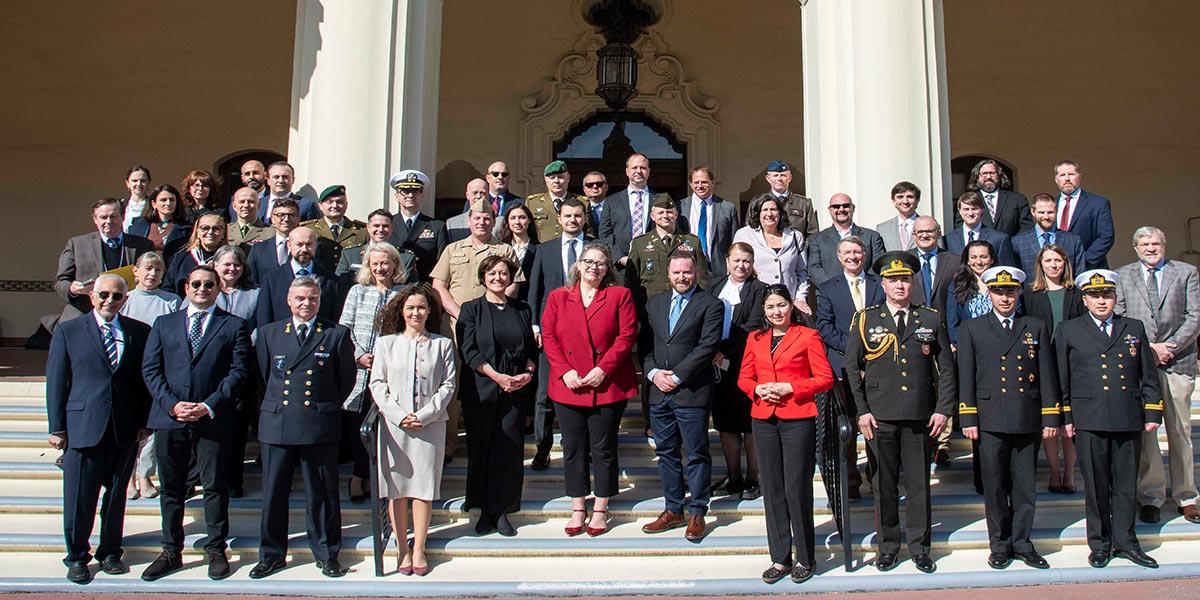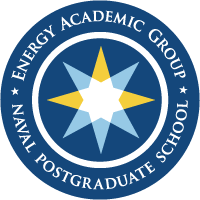NPS Hosts Annual Black Sea Security Symposium - Energy Academic Group

NPS Hosts Annual Black Sea Security Symposium
By Tahmina Karimova, Faculty Associate-Research, Energy Academic Group
MONTEREY, Calif. (NPS) – More than 100 participants, including diplomats and senior officials from nations bordering the Black Sea and Caspian regions, joined U.S. counterparts and energy experts for the Black Sea Security Symposium at the Naval Postgraduate School (NPS), Feb. 6-8. Hosted by the NPS Energy Academic Group (EAG), this was the second annual event which focused on “The Role of the Black Sea in Global Energy Security.”
The symposium highlighted the region’s importance in NATO and U.S. security, including energy among other missions of critical importance, and served as a catalyst for bringing together Department of Defense leaders, scholars, subject matter experts, and industry representatives to address the major issues affecting energy security.
“The Black Sea region is an important arena affecting several critical issues of U.S. national security, including U.S.-Russian strategic competition, freedom of navigation at sea in the strategic waterways which transit the area, and European energy security,” said the president of NPS, retired Vice Adm. Ann E. Rondeau. “We are very happy to see many U.S. allies and partners represented at the event to engage in important topics addressing energy and security of the region.”
Considering current geopolitical developments, the NPS Energy Academic Group expanded the focus of this year’s event and hosted Ambassadors and senior diplomatic representatives from Azerbaijan, Georgia, Turkey, as well as Moldova, Romania and Ukraine to participate in this valuable exchange of information and collaboration.
“It was especially important to get information about the opportunities that allow the countries of the region not only to free themselves from Russia's energy and political influence finally, but also to play an essential role in the energy diversification of the European continent,” said international student George Chkhikvadze, a civilian in the Georgia Ministry of Defense studying Defense Analysis at NPS.
The event consisted of four panels that centered on important issues pertaining to the Black Sea and adjoining Caspian region. Moderators and panelists represented highly qualified and diverse subject matter experts whose valuable insights were instrumental in addressing key themes of the symposium.
Dr. Dan Nussbaum, EAG chair, noted that the inaugural symposium in 2022 was held before the Russian invasion of Ukraine, and the current security environment further amplifies the Black Sea region and the security issues around it, compounding the need for greater dialogue with stakeholders and raising the critical importance of engagements like the symposium.
One of the highlights of the event was a keynote address by former Secretary of Defense Leon Panetta, chairman of The Panetta Institute for Public Policy at nearby California State University Monterey Bay. Panetta emphasized the centrality of the Black Sea and Caspian regions as a “geographic faultline.”
“The Black Sea and South Caucasus regions are the meeting grounds of Russia and NATO, Europe and the Middle East, and the Muslim and Christian worlds,” said Panetta. “The ongoing Russian aggression provided an opportunity for the U.S. to serve as a world leader again to ensure NATO unity and resolve.”
“Several regional and global powers – Russia, Turkey, Iran – are located in the South Caucasus, and together with the United States, have vied for influence at this meeting ground of Europe and Asia. The region is a fierce battleground of U.S.-Russia strategic competition, and energy will continue to play a major role in these geopolitical developments,” said Dr. Brenda Shaffer, NPS faculty member and moderator of the concluding panel with senior diplomats to discuss energy security as part of national security in the Black Sea region and its global implications.
In addition to the expanded regional representation at this year’s symposium, other key participants included Erika Olson, Deputy Assistant Secretary of State for Southern Europe and the Caucasus, and Royal Netherlands Navy Rear Adm. Ruud Schoonen, Assistant Chief of Staff, Strategic Plans and Policy, NATO Allied Command Transformation. Senior representatives from the NATO School Oberammergau, NATO Energy Security Centre of Excellence in Lithuania, and NATO Supreme Headquarters also attended.
U.S. Marine Corps Maj. Benjamin Cole, an NPS National Security Affairs student, has extensive experience in the Black Sea region and anticipates a future assignment to Georgia.
“This symposium proved to be an excellent platform for comprehending crucial regional matters at a strategic level,” said Cole. “Being a foreign area officer, the insights shared by NATO officials, foreign dignitaries, executives, and State Department officials allowed me to gain an insider's view of regional affairs from various viewpoints crucial to my future assignments.”
Nussbaum also noted that while the event had real-world objectives, the symposium also had the goal of enhancing the interdisciplinary education and research at NPS by attracting NPS students and faculty from across campus to come and contribute their perspectives on factors impacting security in the Black Sea region, and not just energy.
“I really benefited hearing the different perspectives on important events occurring in the region,” said U.S. Marine Corps Maj. Sarah Mobilio, who is studying Eurasia regional affairs. “I used some of the content provided by the panel members as research for my ongoing projects. The Q&A session proved to be especially insightful to understanding the evolution of ongoing Russian disinformation campaigns and how they varied in each country. Hearing first-hand accounts of Russian interference and ways they countered directly applied to my job in the U.S. Marine Corps.”
Leveraging NPS as a central connector in the defense academic and innovation ecosystem, organizers of the symposium proposed to keep expanding the focus, participation and impact for next year’s event including additional key representatives from EUCOM, NATO and industry. Relationships developed serve to strengthen international coalitions and resolve to solve common problems impacting U.S. and NATO forces.
LEARN MORE
Email Tahmina Karimova at ttkarimo@nps.edu for more information about this engagement at NPS.
Quarterly Newsletter
Surge is published quarterly by the Energy Academic Group and covers a divese range of energy-related topics. View archive

